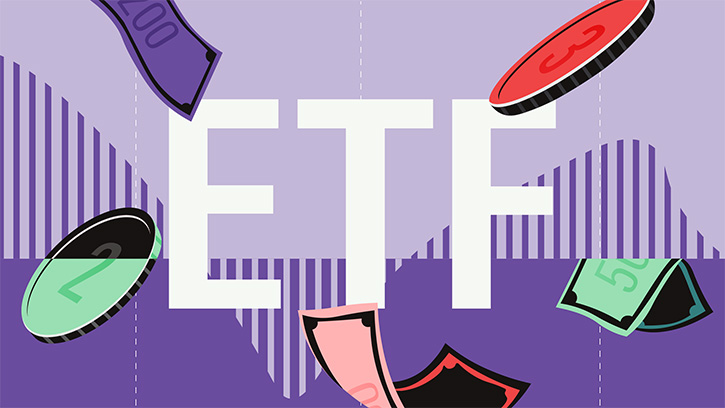
The agri-food sector needs to change: The world is already struggling to feed 7.7 billion people, and crop yields will have to increase by about 50% from current levels over the next 30 years to meet a growing global population and changing diet, a Morningstar report showed in 2023.
The Morningstar Global Food Innovation Index, whose basket consists of companies that Morningstar analysts deem well-positioned to benefit from improvements in food production and safety practices, as well as active in the sustainable packaging and nutrition industries, has gained 4.9% since the start of the year. The gains follow a subdued 2022 and 2023.
Africa and the Middle East, where food shortages and demographic pressure are most keenly felt, are the areas most in need of increased production. According to Diana Radu, author of Morningstar's 2023 analysis, technology can help to alleviate some of these concerns, leading to investment opportunities. These are precision agriculture, low-carbon fertilisers and alternatives to pesticides.
At the same time, a study produced in 2019 by the European Investment Bank for the European Commission predicts that the situation of arable land and other available natural resources is expected to remain unchanged or even worsen, creating a pressing need for innovation in the entire food system.
Precision agriculture, sustainable packaging and blockchain-based food traceability are among the opportunities to produce more using fewer resources, sustainably. As an example, companies developing innovative technologies such as automated farming or drip irrigation systems will be able to use the growing demand for sustainable crops to their advantage.
Funds and ETFs for investing in agriculture
To date, Morningstar counts around fifteen open-ended and exchange-traded funds (ETFs) in Europe belonging to the agriculture sector equity category. These strategies invest in companies involved in the production and/or sale of products and services for the agri-food sector or related sectors.
Pictet - Nutrition P
• Morningstar Star Rating: ★★★
• Morningstar Medalist Rating: Neutral
• Q1 Net Return: 6.1%
• Ongoing Expenses: 2.00%
Launched back in 2007, this fund is by far the largest in its category in terms of assets under management (almost €900 million). Active throughout the food chain, it now counts 41 names in its portfolio.
iShares Agribusiness UCITS ETF USD (Acc)
• Morningstar Star Rating: ★★★★
• Morningstar Medalist Rating: Silver
• Q1 Net Return: 5.2%
• Current Expenses: 0.55%
Launched in 2011, this ETF aims to replicate the performance of the S&P Commodity Producers Agribusiness Index, which has 101 holdings (mostly US , Japanese and Canadian companies). The ETF has outperformed its peers by an average of 3.7 percentage points annualised over a 10-year period. It holds a Morningstar Medalist Rating of Silver.
Rize Sustainable Future of Food UCITS ETF A USD
• Morningstar Star Rating: ★
• Morningstar Medalist Rating: Gold
• Q1 Net Return: 3.8%
• Current expenses: 0.45%
This ETF was launched in September 2020 and replicates the performance of the Foxberry Thematic Research Sustainable Future of Food Index, which consists of 52 companies that aim to innovate across the food value chain to build a more sustainable, safe and fair food system for our planet. Over the past year, it beat the category index by 12.8 percentage points year-on-year, but underperformed the average of its peers by 5.2%.
VanEck Sustainable Future of Food UCITS ETF A USD Acc
• Morningstar Star Rating: n.a.
• Morningstar Medalist Rating: Bronze
• Q1 Net Return: 3.5%
• Ongoing expenses: 0.50%
Launched in June 2022, this strategy does not receive a Star Rating as its track record is shorter than three years. A tracker of the MVIS® Global Future of Food ESG index, it offers exposure to a concentrated portfolio in 35 names ranging from high-precision agriculture, organic producers to meat substitutes and other alternative proteins.







.jpg)




















